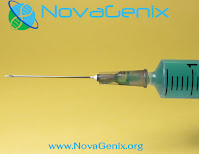Understanding Menopause: Symptoms and Management
What are the first symptoms to expect when you start menopause?
Menopause is a natural phase in a woman's life that typically occurs between 45 and 55, with an average onset around 51. However, the timing varies among individuals, influenced by genetics, lifestyle, and other factors. The transition, termed perimenopause, often precedes menopause by several years, marked by irregular periods and various symptoms.
Common Symptoms of Menopause:
- Irregular Menstrual Cycles: Previously predictable cycles become erratic.
- Hot Flashes: Intense waves of heat accompanied by sweating.
- Night Sweats: Hot flashes occurring during sleep, leading to excessive perspiration.
- Vaginal Dryness: Reduced natural lubrication, causing discomfort during sex.
- Decreased Libido: Lower interest in sexual activity.
- Mood Changes: Emotional fluctuations, irritability, and even depression.
- Sleep Disruptions: Insomnia or difficulty falling asleep.
- Fatigue: Feeling tired or rundown.
- Weight Changes: Hormonal fluctuations influencing metabolism and weight.
- Skin and Hair Changes: Thinning hair and alterations in skin texture.
- Cognitive Function: Challenges with concentration and memory (sometimes referred to as "brain fog").
It's important to note that not every woman experiences all symptoms, and their severity varies. Seeking guidance from an experienced healthcare provider is crucial to manage menopausal symptoms effectively.
Managing Menopausal Symptoms:
- Hormone Replacement Therapy (HRT): Involves replacing lost hormones like testosterone, estrogen, or progesterone. It can alleviate symptoms like hot flashes and vaginal dryness. However, HRT isn't suitable for everyone and carries associated risks that need discussion with a healthcare provider.
- Non-hormonal Medication: SSRIs or SNRIs may help manage mood swings and hot flashes.
- Vaginal Estrogen: Topical estrogen treatments address vaginal dryness with reduced systemic effects.
- Lifestyle Modifications: Maintaining a healthy lifestyle with regular exercise, balanced diet, stress reduction, and adequate sleep can manage symptoms.
- Herbal Supplementation: Some herbal remedies like black cohosh or soy isoflavones might offer relief, but their efficacy isn't FDA evaluated. Consultation with a physician before starting any supplement is crucial.
- Cognitive Behavioral Therapy (CBT): Proven to help manage mood swings and emotional symptoms.
- Supportive Therapies: Yoga, meditation, massage, and acupuncture may alleviate symptoms and improve overall well-being.
Each woman's experience is unique, necessitating a personalized approach.
Consulting a healthcare provider about individual symptoms, medical history, and preferences is essential to explore suitable treatment options. An experienced physician can offer personalized recommendations and guidance through this natural life stage.
Signs and symptoms of menopause in women and how to treat them.
Hormone replacement therapy, or HRT. taking testosterone,








.jpg)







.jpg)




